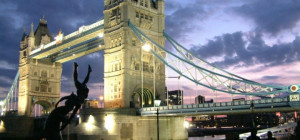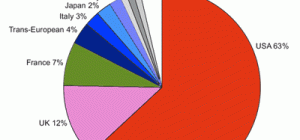
Traffic jams can have very serious effects on the economy, some bad and some, well, not altogether bad. Traffic and economic growth have an interesting relationship that can’t be easily explained. For the everyday driver, traffic is a source of contention and a huge inconvenience. However, there are some redeeming features for the state of the economy.
Congestion Charges
Congestion charges have many advantages for all those involved, and can also help to raise the economy’s revenue. The money from these charges can be spent on improving the services of other forms of public transport such as the efficiency of trains and trams. More people using trains and trams would result in fewer exhaust transmissions, and would positively benefit the environment. If your commute takes you into an area with a congestion charge, it is highly advisable you look for another mode of transportation.
Your Finances
How you choose to spend your money affects the economy, but you have no control over how much money a traffic jam will cost you. Traffic jams can have a very real and significant effect on your personal finances, from the increased amount of gas you use to the cost of the potential damage caused during unsteady gear shifts. Slow moving and gridlock traffic results in inefficient engine transmissions as cars are continually turned off and on instead of maintaining a steady speed. This, in turn, affects the engine and clutch mechanism and can result in damage. To alleviate high costs and save you money, think about leasing a car rather than purchasing one as you’ll be under warranty throughout your lease (in the case of unexpected repair jobs) and you’ll save money by negating having to purchase the car in full.
Commuters
Traffic jams are caused by slow moving and static queues of vehicles. These queues have a knock-on effect on those they hold up. Commuters held in traffic miss time off work which eats into company time and prevents the individual from getting to work and completing tasks. In business, time is money so time lost to traffic is money lost and resources inefficiently used. Commuters travel at very similar times in the day, both in the morning and after the working day in the late afternoon to evening. If you want to avoid jams completely, then rethink how you travel, or if you’re an employer, consider changing working hours for your employees. Instead of driving, consider relying on other methods of transport like train or tram. Even getting a pushbike will negate having to waste time spent in road traffic jams.
Alternatives Routes
If an incident happens in front of your car, then you have no way of avoiding delays to your journey. You don’t know where and when an accident is going to occur, so in some cases, you will just have to sit tight and wait the jam out. However, you can avoid ones that are already forming by planning your route before you begin driving. Before leaving, do a preliminary check on your mobile and scan through to see if traffic updates and warnings are showing in your traffic app.
Health Complications
Traffic jams are stressful, especially if you’re becoming increasingly late by getting stuck in them. The frustration you feel isn’t always alleviated as you escape through the jam. You take your stress onwards with you. During times of stress, your heart rate quickens and your blood vessels narrow. You’re far more at risk of suffering a stroke or heart attack when this happens. You will cool down, and your stress hormones should return to a healthy balance but this highly-charged state can cause long-term damage to your heart health if it occurs frequently. As a result of this, stress caused by traffic jams impact upon how the health system and hospital services invest in treating cardiac problems and diseases, so it is always worth avoiding them if you can. Always check for traffic updates before you leave and adjust your route accordingly if necessary to sidestep stress. As traffic jams are sometimes unavoidable, it is always a good idea to leave a bit of extra time to your travel time when planning your journey. This way, if you do hit a traffic jam you have a bit of leeway before you have to be at your destination, this extra time will help you control your stress levels and gives you more options, such as pulling over and looking for a traffic-free route.







